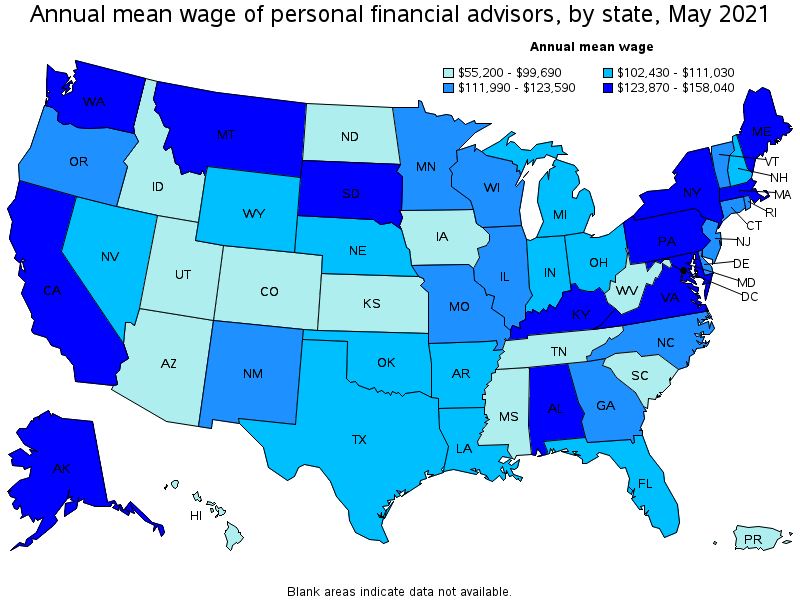
Anybody looking to make the most out of their money will find financial advisors an invaluable resource. A variety of services are offered by financial advisers, including estate planning, investment management, retirement planning and investment management.
What is a Financial Advisor?
A financial advisor is a professional that helps individuals and companies manage their money. A financial adviser can work independently or for a financial firm. They often obtain professional designations that prove their expertise in the field.
Who is a financial advisor?
A financial advisor is a person who can help you develop a plan to reach your goals and achieve financial independence. A financial advisor can offer advice on how to save money, manage debt, and deal with other financial matters.
They can also help you identify ways to save on taxes, ensuring that your investments are aligned with your goals and risk tolerance.

How much do financial advisors earn?
According to the service they offer, and their company's policies, financial advisors can earn different compensation. There are two types of compensation: some advisors charge a fee, and others pay a percentage of the money that their clients have invested.
How do financial advisers spend their day?
Financial advisers spend their time reading the markets and meeting with clients. They also prepare their clients' accounts for reviews and follow market trends and best practices.
What are they doing?
Financial advisers spend their days doing many tasks to provide the best service possible to their clients. They may also attend conferences and networking meetings where they can meet other financial professionals. They may also read articles and blogs about the financial industry.
What are the most essential qualifications for a Financial Advisor?
A qualified financial advisor is someone who has successfully passed a series if exams and has been authorized by the Financial Conduct Authority to practice. They often have a Diploma in Financial Planning along with an FCA-recognized qualification such as the Certificate of Professional Finance advice or Chartered Financial Planner.
How can financial advisors get started?
Financial advisers typically start their careers as trainee advisers, where they are tied to a specific employer and gain a basic knowledge of a range of financial products through a combination of classroom and on-the-job training. Under supervision, they move on to work with their clients.

How do financial advisers become licensed?
A financial advisor can be licensed as a registered investment advisor (RIA) or insurance agent. They must act in the client's best interest and disclose conflicts of interests upfront. This is known as a fiduciary level of care.
How do financial advisors choose clients?
Before forming a relationship with a client, it is important that they are fully aware of their needs. An advisor should get to know their client's goals and needs, as well as their current financial and family situation. To create a complete portfolio, they will need to assess the client's assets and income.
FAQ
Who hires consultants?
Many organizations employ consultants to assist in projects. These include small businesses, large corporations, government agencies, non-profits, education institutions, and universities.
Some consultants work directly for these organizations, while others freelance. The hiring process for both cases varies depending upon the project's size and complexity.
There will be many rounds of interviews for consultants when you are looking to hire. Only then can you select the right person to fill the position.
What happens when the consultant finishes the job?
After the consultant completes the work, s/he will submit a final report detailing the results of their work. This report details the project timeline, deliverables, as well any other pertinent information.
Next, you will review the report and determine if the consultant has met your expectations. If you are not satisfied with the consultant's report, you have the option to ask for modifications or to terminate your contract.
What qualifications are required to become a consultant?
It doesn't suffice to hold an MBA. You also need to be able and willing to work as a business advisor. You must have at least two years' experience working in consulting and/or training within a large company.
You will need to have worked closely alongside senior management teams in order to develop strategy projects. You will need to feel comfortable communicating ideas to clients and getting their support.
A professional qualification exam, such as the Certified Management Consultant (CMC), of the Chartered Management Institute (CMI), is also required.
How can I select a consultant?
There are three major factors you should consider:
-
Experience - How experienced is the consultant? Is she a beginner, intermediate, advanced, expert, or something else? Does her resume reflect the knowledge and skills she has?
-
Education – What did the person learn in school? Did he/she continue to take relevant courses after graduation? Were there any evidences of this learning in his/her writing?
-
Personality - Do we like this person? Would we prefer him/her working for us?
-
The answers to these questions help determine if the consultant is right for our needs. If there are no clear answers, then it might be worth an initial interview to learn more about the candidate.
Statistics
- Over 62% of consultants were dissatisfied with their former jobs before starting their consulting business. (consultingsuccess.com)
- According to statistics from the ONS, the UK has around 300,000 consultants, of which around 63,000 professionals work as management consultants. (consultancy.uk)
- On average, your program increases the sales team's performance by 33%. (consultingsuccess.com)
- According to IBISWorld, revenues in the consulting industry will exceed $261 billion in 2020. (nerdwallet.com)
- "From there, I told them my rates were going up 25%, this is the new hourly rate, and every single one of them said 'done, fine.' (nerdwallet.com)
External Links
How To
How do you find a good advisor?
Finding a great consultant starts with understanding your expectations. Are you looking for them to improve the performance of your website? You want them to optimize the site for search engines to make it rank higher. Maybe you want someone to check on your current hosting provider and tell you if it is in need of improvement. After you have decided what services you need, it is time to start looking at potential companies. Many consultants claim that they can offer these services. But only a small percentage of them are able to deliver. How do you choose the right consultant? Here are some considerations when choosing a consultant.
-
Get recommendations. Referring to other consultants is the best way of choosing a consultant. Hire someone you don't know because they're likely to charge too much. You also don't want someone with a poor reputation to work for you. You're fortunate enough to receive referrals from people you trust. However, even if this is not possible, you might still be able check reviews online. You can find testimonials and case studies from clients who have used your service.
-
Ask around. Many people don’t know that they could gain from consulting. They assume that their current situation is fine and they don’t need changes. This is often false. Even if your results are great, there's a good chance that you haven’t kept up with the latest trends and technologies. Your business could be missing out if it relies on outdated methods. It's always worth asking for referrals to find good consultants.
-
You should verify their qualifications. When you're looking for a consultant, it doesn't matter whether you're building a small blog or launching a multi-million dollar eCommerce store; you want to be sure that whoever you hire has the skills needed to handle your project. Check that they are qualified to complete the tasks and have enough expertise in the chosen area.
-
Find out what type of projects they are skilled in. This is false. Some areas require specialized training and education. If you are looking for someone to create a WordPress theme, then you will not want to hire someone who isn't a specialist in Drupal. This is true for programming languages and graphic design. Ask what projects they usually work on.
-
Find out what their charges are. You don't want a consultant who charges too much. You don't necessarily want to pay too low, but you shouldn't either. There are many different types of consultants. Some bill hourly, while others are charged per project. Knowing exactly what you're paying upfront will save you money down the road.
-
What do they offer? Are they providing free consultations? Do they offer advice on setting up your system? Are they able to guarantee that your site will rank better after working with you? If you don't like what you hear during your consultation, you should feel confident knowing you can cancel without penalty.
-
Ask if they offer discounts over multiple months or for years. Many consultants offer extended discounts for long periods. Even though you do not necessarily have to commit to a whole year of service, you might still be able to benefit from any specials they offer.